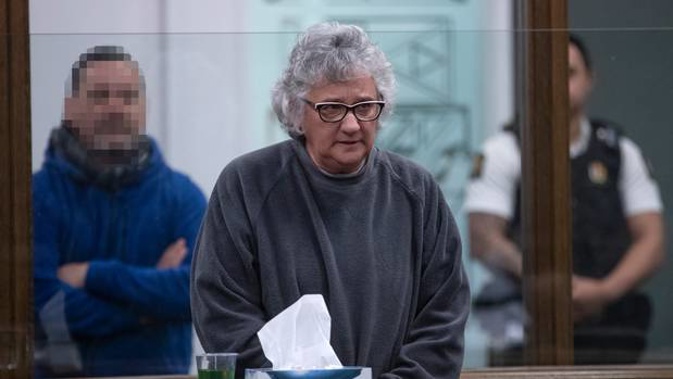
A Whanganui woman who has avoided a life prison sentence for murdering her teenage granddaughter has benefited from a "rare" mercy from the courts, experts say.
Lorraine Smith, 59, was today sentenced to 12 years in prison with a minimum period of six years after she strangled 13-year-old Kalis Manaia Smith with a tie.
People convicted of murder normally receive a life sentence with a minimum non-parole period of at least 10 years, but in cases where the court deems it "manifestly unjust" the defendant can receive a finite sentence instead.
A life sentence does not mean the person will spend the rest of their life in prison, but that, after parole, they could be recalled to prison at any time.
In today's sentenced in the High Court at Wellington, Justice Francis Cooke said he believed it would be manifestly unjust for Smith to receive a life sentence, saying she had given her life to care for others at the expense of her own mental health.
On the day of the murder Smith had been fighting with Kalis, who she cared for along with other grandchildren and her severely disabled adult son.
Another child in the house heard the pair fighting and could hear Kalis saying "let go of me, stop pushing me down, I can't breathe", Cooke said.
The two continued fighting and arguing throughout the evening, and Smith eventually told Kalis to come outside with her and help her close the windows of the sleepout.
Kalis Manaia Smith was killed by her grandmother on March 15. Photo / Supplied
She grabbed a tie from the kitchen table and followed close behind Kalis, pulling the girl's hood over her face before wrapping the tie around her throat and strangling her with it.
Smith then called Kalis' father and told him something had happened, then called 111 and admitted killing her granddaughter. She drove to the hospital after taking an excessive amount of anti-depressants.
Kalis' father arrived at the house and found his daughter's body. He began CPR, but Kalis had been left too long without help, and with the tie still tight around her neck.
Smith sat hunched over in the dock at court and sobbed throughout the sentencing as the judge described the killing.
Justice Cooke spoke of Smith's difficult life, including abuse from an early age and suicide attempts before the birth of her first child.
Smith had cared for her disabled son and three grandchildren, and according to family had turned herself inside out to devote her life to others.
Justice Cooke said she suffered from severe mental health issues and "carer burnout".
"Ms Smith has devoted her life to caring for her family, to the detriment of her own health and welfare . . . pressures mounted to the point that Ms Smith has taken the life of one of those she committed her life to caring for.
"You have had an extremely difficult life and have been required to carry a heavy burden. In the end the circumstances overwhelmed you."
Law professor at Auckland University of Technology Warren Brookbanks said it was "pretty rare" for people convicted of murder to escape a life sentence.
"The Sentencing Act makes it clear that when a person's convicted of murder there's a presumption that they will receive a life sentence," he said.
But the court did have discretion to put aside this presumption.
Judges might consider it manifestly unjust in cases where a relatively young person with no criminal history had offended, where someone was vulnerable due to a disability but was still found legally sane at the time of the offending, or in cases where the defendant was extremely old or had a major substance addiction.
University of Auckland professor of criminal law Julia Tolmie said she knew of two specific cases where battered women who killed their abusive partners avoided life sentences.
These were cases where women had histories of being "really badly beaten" by the person they killed, but were unable to draw on self defence as an argument.
Tolmie said "euthanasia" cases might also be considered.
She said it was "not very common" for people to avoid life sentences, and that manifestly unjust was a "very high threshold".
Take your Radio, Podcasts and Music with you









